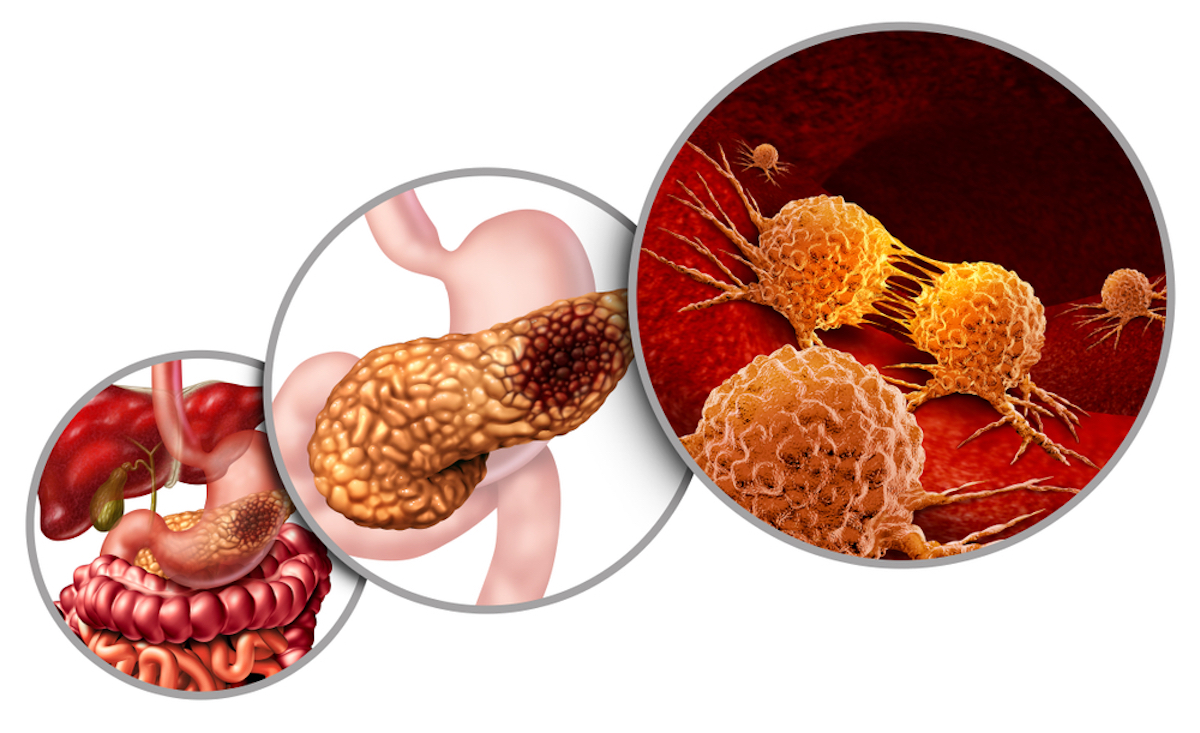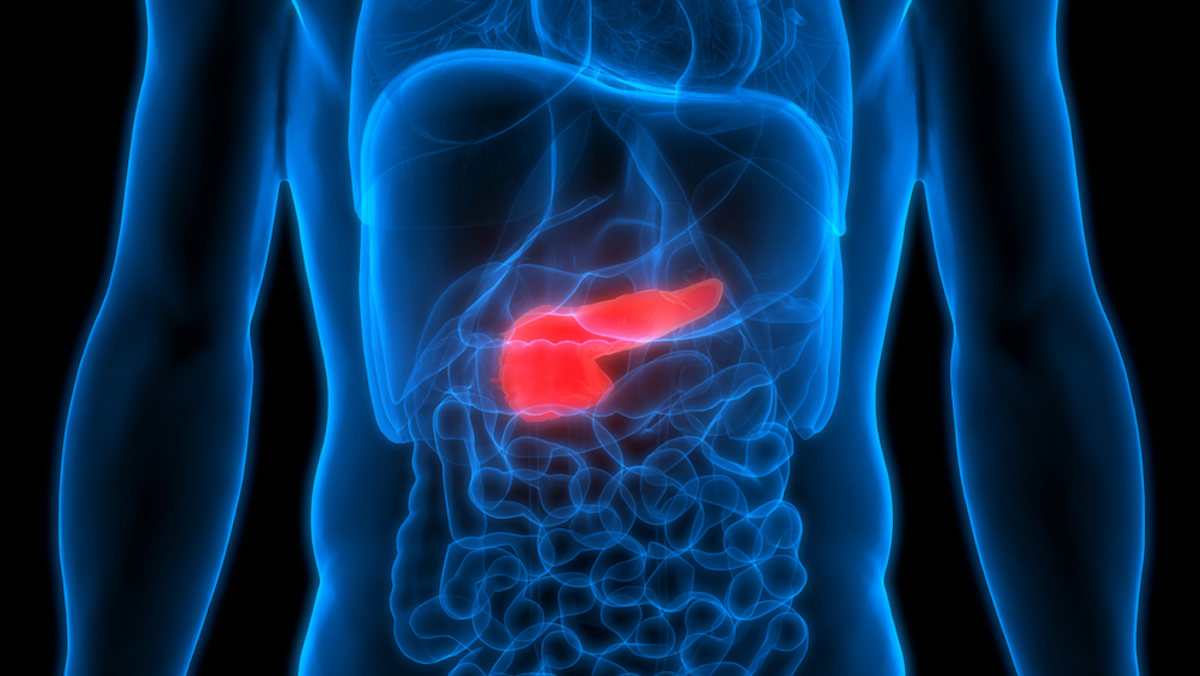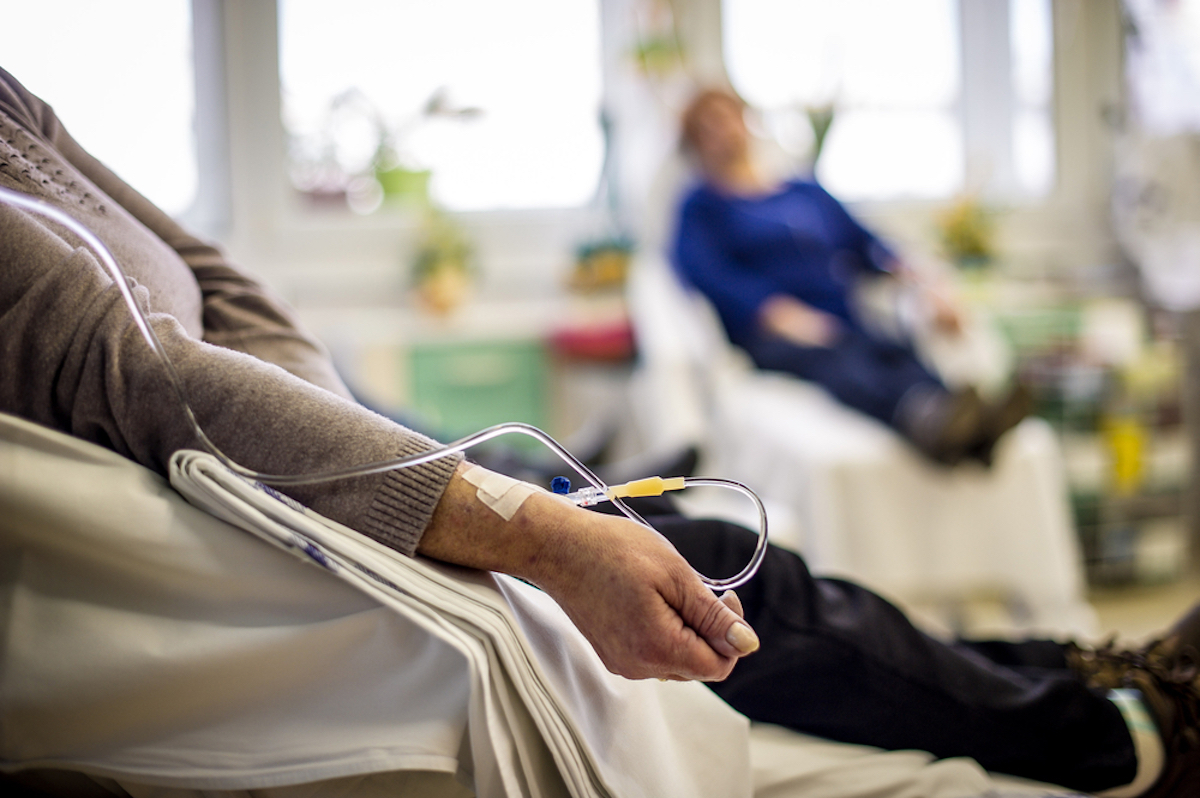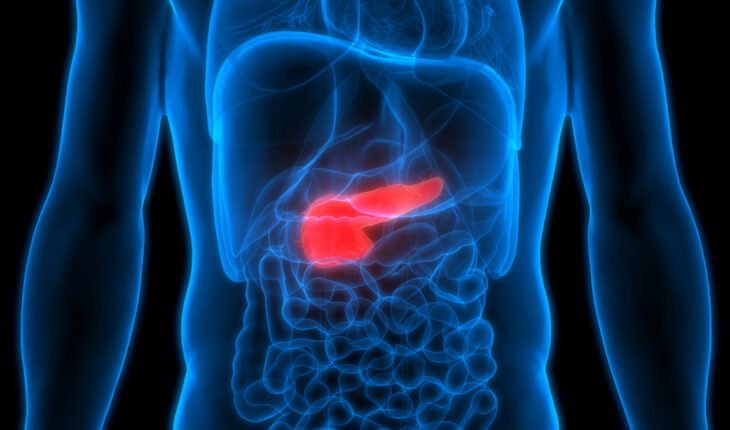Receiving a diagnosis of pancreatic cancer is a real nightmare for most patients. After times of uncertainty, you finally know what it is, but for most diagnosed patients it is just the beginning – of more uncertainty. After the diagnosis, you’ll get more and more tests, and if possible you’ve to start treatment immediately. Every year this diagnosis is made more than 60 thousand times and nearly 50 thousand people die from this form of cancer – after fighting so hard to get better. That’s why it’s so important to get diagnosed at an early stage! The sooner this type of cancer is diagnosed, the better your chances of survival. Therefore, it is incredibly important that you are aware of the warning signs. After all, a painful abdomen isn’t always just a cramp.

What is Pancreatic Cancer?
Cell mutation causes pancreatic cancer, which can result in a cancerous or non-cancerous tumor in the pancreas. Treatment should commence immediately upon diagnosis. The pancreas regulates blood sugar levels and produces insulin and glucagon, which are critical in controlling the body’s blood sugar.
The cause of pancreatic cancer remains unknown, making it challenging to treat and potentially cure the disease. According to the American Cancer Society, pancreatic cancer accounts for 3% of all cancer diagnoses annually and 7% of all cancer deaths.

Risk Factors of Pancreatic Cancer
The chance of developing pancreatic cancer is 1 in 64. There are a lot of factors that increase the chance of getting this type of cancer. Risk factors include:
- Smoking and/or using any form of tobacco
- Obesity
- Diabetes
- Exposure to chemicals
- (Hereditary) chronic pancreatitis
- Hereditary syndromes with gene changes
- Age
- Gender
- Ethnicity
Being male and/or being 45+ increases the risk of developing this type of cancer. Unfortunately, these are factors we cannot influence, just like diseases and syndromes, like the BRCA genes, passed from parent to child. Ethnic groups that are more at risk of developing pancreatic cancer are African-American and Ashkenazi Jewish.
Stages of Pancreatic Cancer
This type of cancer is categorized into 5 stages. If someone gets diagnosed with pancreatic cancer, the healthcare professional also tells them which stage their cancer is. This depends on several factors, like location, size, and if the cancer is spread. Stages are:
- Stage 0; abnormal cells are noted in the lining of the pancreas, these cells could become cancerous. This should therefore be monitored closely.
- Stage 1; a cancerous tumor in the pancreas
- Stage 2; a cancerous tumor in the pancreas and has spread to nearby lymph nodes, organs, or other tissues
- Stage 3; cancer has spread to major blood vessels around or near the pancreas and probably also to the lymph nodes.
- Stage 4; cancer has spread to areas further away in the body, like the lungs, liver, or colon, and probably also to the lymph nodes, organs, and tissues near the pancreas.
Cancer in the pancreas can have some pretty mean complications. The worst of them is dying from it, but other complications someone can experience include unintended weight loss, (severe) abdominal pain, bowel obstructions, and jaundice. The latter happens when cancer blocks the liver’s bile duct. Skin and eyes turn yellow, urine turns a dark color and stools turn pale.

Symptoms of Pancreatic Cancer
Unfortunately, pancreatic cancer is often detected in its late stages – when the cancer is spread to other organs or tissues. This is partly because in earlier stages people experience little to no symptoms. Warning signs of pancreatic cancer are:
- Upper abdominal pain that may radiate to your back
- Loss of appetite
- Unintended weight loss
- Jaundice
- Itchy skin
- Diabetes or difficulty controlling it
- Blood clots
- (Severe) fatigue
- Nausea & vomiting
- (Chronic) pancreatitis
Treatment Options
In case you suspect you – or a loved one – are suffering from these symptoms it’s crucial to visit your professional healthcare provider as soon as possible and voice your concerns to him or her. Your healthcare provider will listen to your story, and ask you some important questions, like what kind of symptoms you have, how long you’ve been experiencing it, and whether it’s getting worse or not. Tests such as endoscopic ultrasound, a biopsy, and blood tests are also done. In case the diagnosis of “pancreatic cancer” is made by your professional healthcare provider, like an oncologist, a treatment plan is set up. Treatment options include:
- Surgery to remove the cancerous part of the pancreas
- Radiation therapy to kill cancer cells
- Chemotherapy to kill cancer cells
- Immunotherapy helps your body fight the cancer cells
- Targeted therapy to kill targeted genetics or proteins that help cancer grow
There are so many ways to treat cancer these days, the above-mentioned options are just a few examples. Sometimes they are combined, but it can also happen that these treatments do not help (anymore), so other options should be considered. That’s why it’s essential to do your own extensive online research and stay up to date about new treatments. Have you already been diagnosed with pancreatic cancer but aren’t satisfied with your treatment plan? Getting a second opinion in another hospital or oncology center is always a smart idea. Start your search today:

